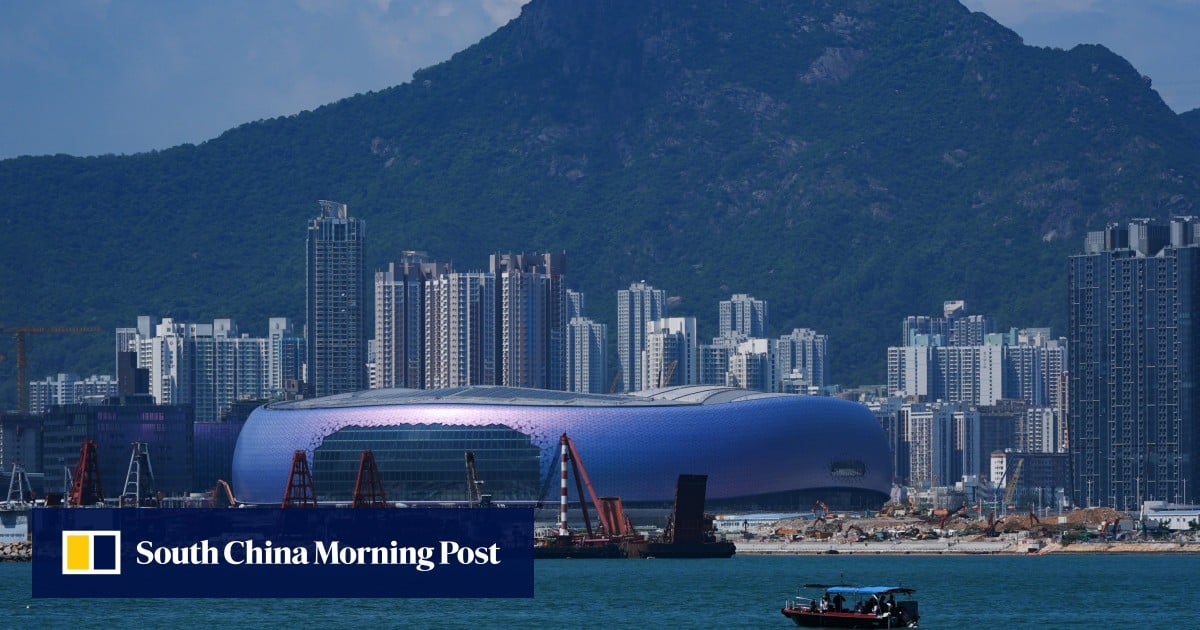
Updated
Nov 19, 2024, 09:00 PM
Published
Nov 19, 2024, 09:00 PM
MANILA – The United States and the Philippines have inked a military intelligence-sharing deal that analysts say could help counter a more assertive Beijing in the South China Sea while also potentially ensuring ties will remain strong under a second Donald Trump presidency.
US Defense Secretary Lloyd Austin and his Philippine counterpart Gilberto Teodoro Jr on Nov 18 signed the agreement in a ceremony held in Manila’s military’s headquarters, where the two leaders also broke ground for a centre meant for coordination meetings between US and Filipino troops.
Called the General Security of Military Information Agreement (GSOMIA), the latest US-Philippines defence deal will allow both nations to securely share classified military information.
Security officials also told the Associated Press that the US could provide the Philippines with sophisticated weapons and military equipment like missile systems, as well as satellite and drone systems under the GSOMIA.
The deal was the highlight of Mr Austin’s latest visit to the Philippines and is part of the outgoing Biden administration’s last-ditch effort to strengthen US military alliances amid the intensifying rivalry against China in the Indo-Pacific region.
At the same meeting, both Mr Austin and Mr Teodoro also expressed concerns over China’s conduct in the South China Sea, with the Pentagon chief reiterating Washington’s defence commitments to the Philippines under a 1951 Mutual Defense Treaty.
Mr Austin, who was on his fourth visit as defence secretary, on Nov 19 gave assurances that the Philippines will remain an “important” country for the US under incoming president Trump, who will serve his second term from January 2025.
“I believe that this (Philippines) will be an important country for us for many, many years, and the strength of our alliance, I think, transcends changes in the administration going forward,” Mr Austin said in a joint press conference with Mr Teodoro on the island province of Palawan, which directly faces the South China Sea. Mr Austin’s two-day visit ended on Nov 19.
Beijing’s increasing assertiveness in the disputed waterway has pushed Philippine President Ferdinand Marcos Jr to further beef up security ties with its treaty ally, the US. And US forces now have access to more Filipino bases through the Enhanced Defence Cooperation Agreement, which was signed in 2014 and expanded in February 2023.
Washington and Manila have also been conducting joint patrols in the eastern parts of the South China Sea that lie within the Philippines’ exclusive economic zone, which Beijing is also claiming as its own.
Geopolitical analyst Don McLain Gill of De La Salle University in Manila told The Straits Times that by having access to the US’ advance intelligence capabilities under the GSOMIA, the Philippines would be in a better position to detect China’s activities in the South China Sea.
He said the latest defence deal would also help strengthen the hub-and-spokes alliance structure in the region.
“This may pave the way for a more institutional mechanism for defence cooperation within the US alliance network in the Indo-Pacific, ensuring stability and continuity in collaborative defence cooperation despite shifts in national political headwinds,” said Mr Gill.
The US-Philippines military intel-sharing pact also adds another layer to bilateral ties that could potentially help ensure continuity of strong relations under Trump, said political analyst Robin Garcia of the Manila-based public affairs firm WR Numero.
“It’s a step forward towards institutionalisation and the deepening of the ties between the Philippines and the US. And because of this framework, it will be harder for any government to change it, even if there’s a change in the leadership,” Mr Garcia told ST.
But he believes it remains to be seen if Trump would prioritise relations with the Philippines in the coming years, saying the president-elect will have to deal with three geopolitical flashpoints in the Indo-Pacific region when he resumes office next year: the South China Sea dispute, Taiwan, and the Senkaku Islands. The disputed Senkaku islands, also known as the Diaoyu Islands in China and as the Diaoyutai Islands in Taiwan, are a group of uninhabited islands in the East China Sea, administered by Japan.
“We’re not sure about the hierarchy of Trump’s interests. And at the same time, we’ve seen that Trump is sceptical of bilateral agreements. So at the very least, the Trump administration will review these agreements with the countries that Biden has agreed on helping,” Mr Garcia said.
Mr Gill does not foresee a radical shift under the Philippines-US alliance, but said the Marcos government will have to grapple with particular challenges in dealings with Trump.
He said that includes “improving Manila’s capacity to negotiate with Washington on issues of security and economics, while ensuring that the Philippines is positioned favourably under Trump’s transactional foreign policy”.
Mr Marcos would have to go on a “charm offensive” with Trump if the Philippines plans on relying on the US military to counter Beijing in the South China Sea, said Mr Garcia.
This fact is not lost on Mr Marcos himself, who had called Trump on Nov 19 to congratulate him on his electoral victory.
“He remembers the Philippines… I expressed to him our continuing desire to strengthen that relationship between our two countries, which is a relationship that is as deep as can possibly be because it has been (so) for a very long time,” Mr Marcos told reporters.
The two leaders had chatted about Mr Marcos’ mother, former Philippine First Lady Imelda Marcos and wife of the late dictator Ferdinand Marcos Sr, who is well known for her extensive luxury shoe collection.
The Philippine president also told Trump that the US president-elect was “overwhelmingly” voted in by American Filipinos in the recent election.
“I am glad that I was able to do it (talk on the phone) and I think President-elect Trump was also happy to hear from the Philippines,” he said.

 By The Straits Times | Created at 2024-11-19 13:17:45 | Updated at 2024-11-19 15:26:22
2 hours ago
By The Straits Times | Created at 2024-11-19 13:17:45 | Updated at 2024-11-19 15:26:22
2 hours ago








